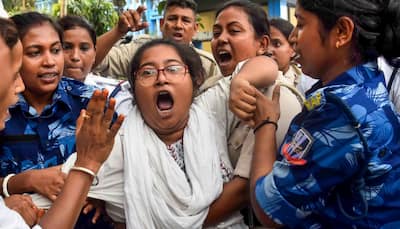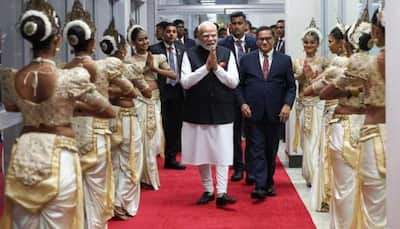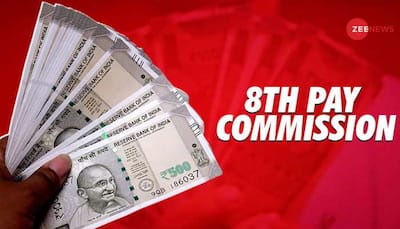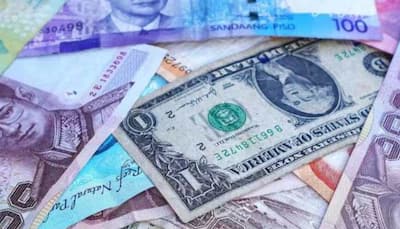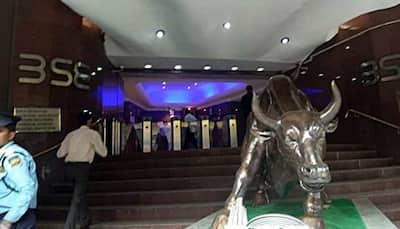New Delhi: The central government employees and pensioners are increasingly concerned about whether they will lose out on most of the benefits under the 8th Pay Commission if they retire before January 1, 2026.
However, Finance Minister Nirmala Sitharaman, in her response to the Rajya Sabha’s discussion on the Finance Bill, 2025, and the Appropriation (No 3) Bill, 2025, last month made it clear that the recent changes to pension rules merely serve to validate current policies and do not change benefits for civil or defense pensioners.
Sitharaman said that the 7th CPC ensured parity between pre-2016 and post-2016 retirees. It is expected that the impending 8th CPC, which Prime Minister Narendra Modi approved in January 2025, will further revise salaries and benefits for government employees and pensioners.
What is the 8th Pay Commission?
Prime Minister Narendra Modi-led Union Cabinet approved the constitution of the 8th Pay Commission in January this year. The 8th Pay Commission is expected to come into effect from January 1, 2026. The Pay Commission decides the salary and compensation of central government employees. With the 8th Pay Commission, central government employees can look forward to a salary hike.
The commission panel, which will comprise a chairperson and at least two members, is expected to be formed soon. The commission will hold deliberations with various stakeholders and then submit its report on the fitment factor and other modalities for the revision of salaries and pensions of employees and retirees.
Why do employees await the 8th Pay Commission?
The Central Pay Commissions are normally established once every ten years to review and recommend changes to pay scales, allowances and benefits for central government employees. Implemented in 2016, the 7th Pay Commission will remain in effect till 2026.
More than one crore central government employees and pensioners are looking forward to the formation of the 8th Pay commission, which will revise their basic pay, allowances, and pension.
With the implementation of the 7th Pay Commission, there were significant changes in salary structures, allowances and pensions for central government employees. It also ensured fair compensation for both serving staff and retired personnel.
The 8th Pay Commission’s recommendations would likely come into force from January 1, 2026. Similar to previous commissions, employees expect that the 8th Pay Commission will bring revisions in salaries, including changes to DA and DR for pensioners.
What is the current pension controversy?
The pension controversy arose when some changes were made in the Central Civil Services (CCS) pension rules in the Finance Bill 2025. There were speculations that the government could deny the 8th Pay Commission benefits to pensioners who have retired or will retire before 2026. There were concerns that the recent amendments to pension rules might change benefits for civil or defence pensioners.
What does the government say about pensions?
Recently, Finance Minister Nirmala Sitharaman clarified in the Rajya Sabha that the government is committed to pension parity for retired government employees. She also said the 8th Pay Commission will be formed to revise pensions and salaries of employees.
“Prime Minister Narendra Modi had in January 2025 approved the establishment of the 8th Central Pay Commission to revise the salaries and benefits of Central Government employees and pensioners,” she said.
According to Sitharaman, the validation rules, which are a component of the Finance Bill that the Lok Sabha approved, ensure that the retired central government employees would not face discrimination when it comes to pension payments.
Sitharaman said that all central government pensioners who had retired before January 1, 2016 are getting pension at par with employees who retired after January 1, 2016.
“The validation rules do not, in any way, change or alter the existing pensions so fixed of existing civil pensioners from the present stage,” she said.
Additionally, she pointed out that the validation rules also do not affect Defense Pensioners in any way as they are covered by separate rules.
“It is not an amendment to any pension Rules or instructions but only a reaffirmation of the same w.e.f. 1st June, 1972, i.e. the date the CCS (Pension) Rules were promulgated,” Sitharaman said.
On her official social media handle, Sitharaman wrote that the 7th Central Pay Commission, whose recommendations were accepted during the first tenure of the Narendra Modi-led government, brought in “parity between pre 1.1.2016 and post 1.1.2016 Pensioners”.
Will old pensioners suffer if they retire before 2026?
Finance Minister Sitharaman has clarified that the government is committed to pension parity for retired government employees. All central government pensioners who had retired before January 1, 2016, are receiving pension at par with employees who retired after January 1, 2016, she said.
Sitharaman said that the validation rules ensure that there is no discrimination among the retired central government employees over the payment of pensions.
Stay informed on all the , real-time updates, and follow all the important headlines in and on Zee News.




